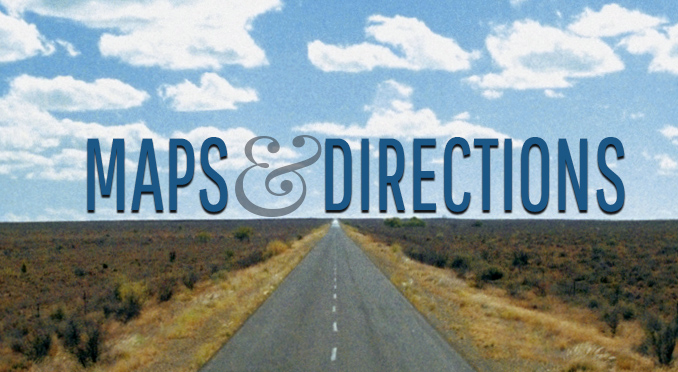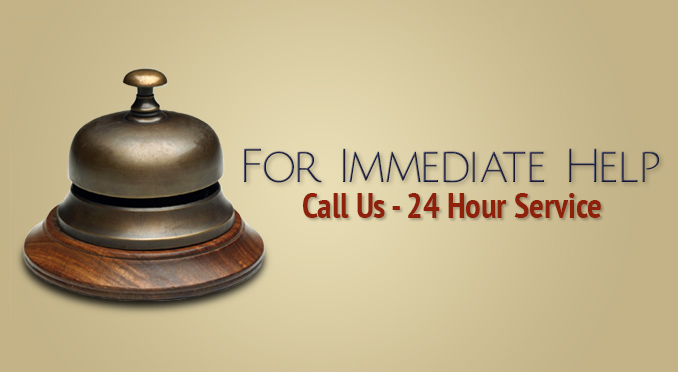Frequently Asked Questions
When a Death Occurs
There are many questions that arise when a death is imminent or actually occurs. Who do we call, where and when should the funeral be held, etc.
Brighton Memorial Chapel is one of the first calls a family should make when a death occurs. We are available 24 hours a day, 365 days a year. If a death should occur after normal business, our answering service will contact us and we will respond to your call within minutes. Once we are contacted, we will help guide a family through the process. First, we will need to know where the death occurred in a nursing home, hospital, or at home. Second, we would ask to speak with a family member to set things in motion. As soon as someone is entrusted to our care, the family is assured that we will observe the customs and traditions that have been followed throughout our history.
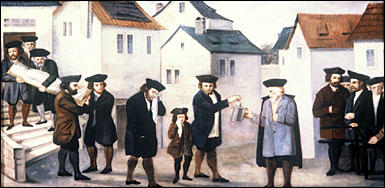 Death at a Home/Private Residence
Death at a Home/Private Residence
When a death occurs at a home, without a nurse present or not under hospice care, 911 should be called. The Monroe County Medical Examiner will investigate the circumstances and then release the person to the custody of the funeral home. When hospice is involved, the nursing coordinator will contact the necessary authorities on the families’ behalf, and then call the funeral home.
We encourage families to take as much time as they need with there loved one, no matter where the death occurs, before calling the funeral home. Once we are called, we will come to the place of death and make the transfer to the funeral home. A time would be set for the family to meet at the funeral home to go over every aspect in the planning of their loved one's service.
Who should I call if a death occurs out of state or out of the country?
Call Brighton Memorial Chapel first. We have found that it is less expensive if you contact one funeral home. We can carry out all the details with our out of state affiliates through the Jewish Funeral Directors of America. This will translate into substantial savings to the family.
Questions Regarding Jewish Funerals
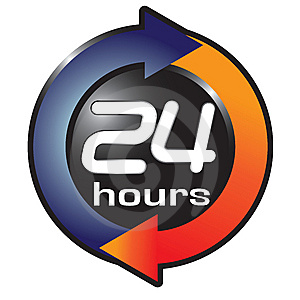 Do funerals have to be held within 24 hours?
Do funerals have to be held within 24 hours?
Jewish law requires that burial take place as soon as possible, preferable within 24 hours. Burial may be delayed for legal reasons; to transport the deceased; if close relatives must travel; or to avoid burial on Shabbat (The Sabbath) or any other holy day. Burial should not be delayed longer then necessary. Brighton Memorial Chapel will coordinate a time for the service that allows for the family needs, as well as the time constraints of the rabbi and the cemetery.
Is a casket needed for burial?
Yes. Even the most basic direct burial requires an alternative container. Brighton Memorial Chapel offers a wide variety of kosher caskets, constructed under strict Jewish guidelines (i.e. wooden dowels and kosher glue in lieu of metal screws).
Is a pine box required for a Jewish burial?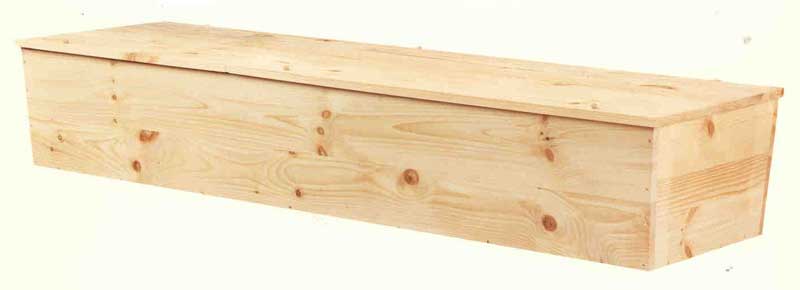
No. If the casket is made entirely of wood, and not manufactured on the Sabbath, then it is considered kosher. The casket must be made completely of wood, held together by wooden dowels and kosher glue. Our prophets tell us “From earth you have come, and to earth you shall return.” Wooden caskets help with this process by disintegrating quickly. Metal caskets are not permitted by Jewish law because metal is a sign of war. Brighton Memorial Chapel has a large selection of kosher caskets in all price levels, from a traditional pine box to solid mahogany. This is a decision a family will decide on privately, and whatever casket is selected will be appropriate.
What is a Shomer? 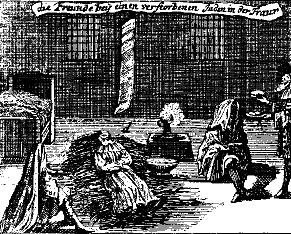
A guard or watcher who traditionally recites psalms near the deceased. Traditionally, the deceased is not to be left alone before burial. In the absence of a family member or friend familiar with the prevailing customs, a shomer can be arranged by the funeral home.
What is a Taharah?
As a newborn is washed and dressed so should the deceased. This traditional washing and dressing of the deceased is done with the utmost dignity and respect. The Tahara is performed by trained members of the 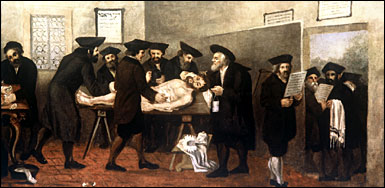
Chevra Kadisha (Sacred Society). In accordance with Jewish traditional law, men prepare men, while women prepare women. The deceased is cleansed, dressed in Tachrichim (burial shroud), and placed in the casket. In certain instances, the rabbi a family chooses, or the rules of the synagogue and or burial plot will mandate this tradition. We would advise you to consult your rabbi for any questions as to what he or she deems permissible.
What should a person be dressed in for burial?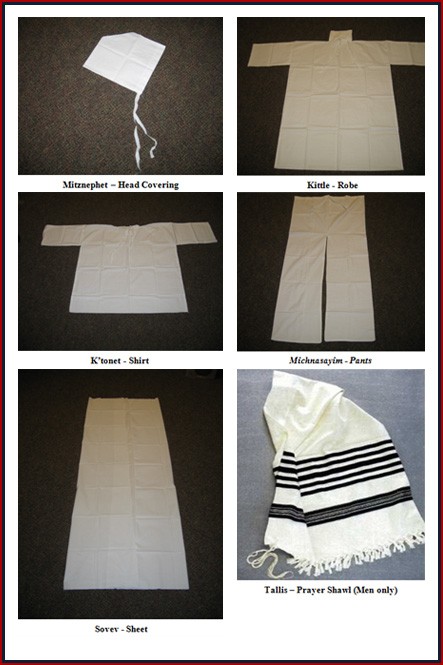
Jewish law calls for burial in a plain white shroud (Tachrichim) so as to demonstrate the equality of all people. This simple white garment has no pockets, to show that we take nothing with us when we leave this world and that God judges people on their merit and good deeds, not on what material wealth they have accumulated over their lifetime. In addition, a Jewish male is buried with his own Talit (Prayer Shawl), unless the family wishes to pass it down to another family member. The other option for burial is the deceased own clothing, such as a suit for a man, or a dress for a women. In certain instances, the rabbi a family chooses or the rules of the synagogue and or burial plot will mandate certain traditions. We would advise you to consult your rabbi for any questions as to what he or she deems permissible. For pictures of the burial shroud, please visit our Traditions and Customs page.
Do Jewish people have calling hours or viewings?
Viewing the deceased is not a Jewish custom, and tradition teaches that it is disrespectful to look at a person who cannot look back. Therefore, a traditional Jewish funeral would have a closed casket at all times. The belief is that a person should be remembered alive and well, instead of the final mental picture of a loved one lying in a casket. Viewing by families for the purpose of identification is permissible. Brighton Memorial Chapel will accommodate the wishes of the family, if they chose to say goodbye privately before a funeral is to take place.
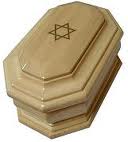 Is embalming required by law?
Is embalming required by law?
Embalming is not required and is contrary to Jewish law. Jewish funeral homes utilize refrigeration in lieu of embalming.
[Urn with a Star of David] Can a family choose cremation?
Cremation is contrary to Jewish law but is accepted within the Reform movement. Families should consult with their rabbi as to whether cremation would be an appropriate choice. Brighton Memorial Chapel will accommodate families that choose cremation.
Where are funerals held?
Depending on a congregation policy, a service may be held in the temple or synagogue. Families that are not affiliated with a temple or synagogue may chose to have a service in the chapel of the funeral home or a graveside service right at the cemetery. Often, it is hard to predict how many people will be in attendance for the funeral. If the deceased is young or leaves a large family, or is active in the business or social activates of the community, it is likely that a large number of people will want the opportunity to pay their respects, by either being present at the funeral service or coming to the house of mourning afterward.
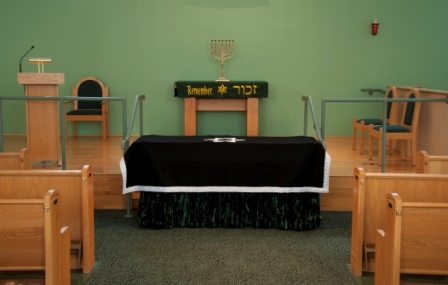
How is a cemetery selected?
Many times a family is faced with a sudden or unanticipated death with no cemetery plot already reserved. Brighton Memorial Chapel can help you with making the necessary arrangements to purchase a grave. The selection of a cemetery should not be made without hearing all your options. There are many factors to consider before a final cemetery choice is made. Proximity to the family's home, religious requirements, price of the graves, location in the cemetery, and future needs are all things to consider when choosing a cemetery.
What information will I need to provide to the funeral director?
We realize that there is a lot going through people’s minds when a loved one is dying or has passed away. We have compiled the following checklist of information, to help families gather the essential information for a funeral. This checklist is useful for families making both pre-arrangements and at need arrangements.
Basic Questions asked of you:
- Name of deceased
- Where the deceased is located (hospital, hospice, home, or nursing facility)
- Phone number or address where the deceased is located
- Legal address of deceased
- Date of birth, and place of birth
- Social security number
- Occupation of the deceased
- Father’s name, mother’s name and maiden name
- Education level
- Marital status
- If married, wife’s name and maiden name
- Informant’s name (person giving information), address, and relationship to deceased
- Hebrew name of the deceased (if known)
- Hebrew names of the deceased parents (if known)
Information to bring with you to the funeral home:
- A picture of the deceased
- Veterans discharge papers
- Clothing if needed (unless a burial shroud is to be used)
- Tallis (prayer shawl – if a family chooses to have a Taharah – only for a man)
- Cemetery deeds and plot information
Death notice information:
- Survivors of the deceased, children, grand/great children, brother, sisters, etc….
- Family members who are predeceased
- Any memberships or involvement in the military, fraternal organizations, synagogues, fire department, etc…
- Any family statements that you wish to have included in the death notice
- If you wish, an organization which donations in memory of deceased can be made
- The location and hours of shiva/receiving, if you wish to mention this in the death notice
The funeral home will help shape the notice into the standard Rochester Democrat & Chronicle www.democratandchronicle.com death notice format, as well as assist in placing death notices/obituaries in any major newspaper throughout the country.
Funeral Costs
How much does a funeral cost?
A funeral can be broken down into three main costs:
- Funeral Home Service Charge (i.e.: costs associated with services provided by the funeral home)
- Merchandise (i.e.: casket, burial vault, register book, burial shroud, etc...)
- Cash Advances (i.e.: third party charges that appear on a funeral statement. These are items the funeral home makes no profit on. We charge families exactly what we are charged. They include the cost for the cemetery, newspapers, death certificates, rabbis honorarium, Chevra Kadisha, etc...) These cash advances or third party charges will be the same no matter what funeral home in Monroe County the family chooses.
Cost can vary greatly from funeral home to funeral home depending on the facility, its location and quality of service provided. Brighton Memorial Chapel encourages families to shop around and compare. The best way to do this is to ask a funeral home for their General Price List. Think of this as a menu at a restaurant. It will show you the services the funeral home offers and their prices. By law, every funeral home is required to give you a price list when asked. Please fill out the secure pre-need form and we will be happy to provide you with the price for our services. The more details provided the more accurate figure we can provide. pre-need pricing
How can a funeral be paid?
Brighton Memorial Chapel accepts payment through family funds, insurance, pre-need burial trusts opened either through our firm or through another funeral home, or by credit card.
Why Choose Brighton Memorial Chapel?
- Local Ownership -We are proud to state that Brighton Memorial Chapel is Rochester's only Jewish funeral home. We purchased Parsky Funeral Home in 2009 after they had been sold to a multi-state entity. Brighton Memorial Chapel is committed to returning local dollars spent at our funeral home back into the Jewish community we serve. Simply put, money spent at Brighton Memorial Chapel, will stay in Rochester. Profits will not be sent elsewhere for other communities to benefit. The funeral home’s owner, Jarrod M. Krieger is a fourth generation Rochesterian, who has been serving the Jewish funeral needs of this community since 1997.
- Location – Rochester’s Jewish community was once huddled in one central location within Rochester. Over time, the community has spread throughout Monroe County. The most recent census sponsored by the Jewish Federation lists that the communities of Brighton, Penfield. Pittsford, Henrietta and Victor make up roughly 72% of the Jewish population in Rochester. With our location on Winton Road South, the building could not be more convenient to these communities. Our building is just 1.5 miles from the Jewish Home of Rochester, and just moments from I-390, and I-590, as well as most synagogues, hospitals, cemeteries and the airport.
- Price - Brighton Memorial Chapel was opened as an alternative for the Jewish Community. Acknowledging that the Jewish population is relatively small, when compared to the area at large, and reconciling the enormous cost of funeral facilities to this population size; it becomes apparent that it is not cost effective to spend millions of dollars to purchase or build a Jewish funeral home. It is because of this relationship between population size and the costs of funeral facilities that a national trend has emerged to seek a mutually beneficial arrangement combining funeral facilities. This innovative approach has enabled both the Jewish community of Rochester and Brighton Memorial Chapel to share in significant savings. By negotiating a rental agreement with Miller Funeral Homes, Inc., we set in motion a plan to share facilities, staff and locations which has allowed us to set prices below any existing local funeral homes trying to perform Jewish funerals.
- Personal & Professional Service – The staff at Brighton Memorial Chapel will provide the highest quality of professional service to the Jewish families we serve. We will be open and fair, and will honor our commitments to the Jewish traditions, and adhere to the highest ethical standards. We will serve families as we would our own, with tenderness, dignity and respect. We will help families celebrate a life, and mourn the loss of someone they love, in a traditional or unique way. Personal service is the most important aspect of every funeral. It is what separates us from the large funeral home chains.
- Funerals for intermarried couples. According to the National Jewish Population Survey 2000-01, 47% of marriages involving Jews in the United States between 1996 and 2001 were intermarriages with non-Jewish partners. Rates of intermarriage have increased in other countries as well. Because Brighton Memorial Chapel is a strictly Jewish funeral home, we would only handle the funeral arrangements for the Jewish spouse. Because we share space with Miller Funeral Homes, an all faith funeral home, we are in a unique position to help intermarried families. The sharing of the two funeral homes allows us to give intermarried families some uniformity to funeral services. Families can use our chapel for both sets of services, choose similar merchandise and be pointed in the direction of burial plots where both husband and wife can be buried next to one and other.
Miscellaneous Questions
Pre-Need
Should I pre-pay a funeral?
Yes and No. If you are going on Medicaid then prepaying a funeral is recommended. Medicaid will encourage you to do so and it helps to assure that your wishes are carried out. If Medicare is not involved, then it becomes a matter of preference and long-term goals. If you would rather provide the funeral home with your wishes, and not pre-pay, we will simple place the information in a file until our services are requested.
Are the laws governing pre-paid funerals the same throughout the country?
No. Laws very greatly from state to state; some states provide little or no protection and your pre-paid trust account can be in jeopardy. New York State is very regulated and protects both the consumer and the funeral home equally.
What should I look for in a pre-paid burial trust?
- Is the burial trust portable? (i.e.: can be transferred to another funeral home of your choosing)
- Can you receive a yearly statement?
- Does the funeral home charge for setting up the pre-arranged funeral and its associated burial trust account?
- Will today's burial trust pay for a funeral in the future?
- Do you know where the burial trust is established and maintained?
- Is the burial trust 100% insured?
How does Brighton Memorial Chapel handle their burial trust accounts?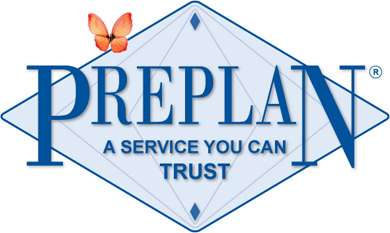
- There is no charge for setting up and maintaining a pre-arranged funeral and its associated burial trust.
- We send you the location and account number of the burial trust account, as soon as the trust is opened.
- Our burial trust accounts are opened through the PrePlan and are 100% insured by the Federal Deposit Insurance Corporation (FDIC).
- The financial institution where the funds are invested issues a statement every January.
- The burial trusts are 100% portable.
- We offer a pre-need price guarantee.
Social Security
In each case of death, where we are the primary funeral home involved, we initiate the application process to Social Security for any possible benefits. At present, we perform this function by filing with our local office; form SSA-721 (Statement of Death by Funeral Director). This alerts them of the death and whom they should contact.
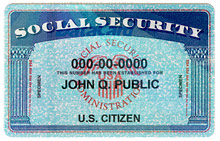 How Social Security affects families:
How Social Security affects families:
Social Security survivor benefits help ease the financial burden that follow s a worker's death. Almost all children under age 18 will get monthly benefits if a working parent dies. Other family members may be eligible for benefits, too.
Anyone who has worked and paid Social Security (FICA) taxes has been earning Social Security benefits for his or her family. The amount of work needed to pay survivors benefits depends on the worker's age at the time of death. It may be as little as 1-1/2 years for a young worker. No one needs more than 10 years.
WHO CAN GET SURVIVOR BENEFITS?
Here is a list of family members who usually can get benefits:
Widows and widowers age 60 or older.
Widows and widowers at any age if caring for the deceased’s child(ren) who are under age 16 or disabled.
Divorced wives and husbands age 60 or older, if married to the deceased 10 years or more.
Widows, widowers, divorced wives, and divorced husbands age 50 or older, if they are disabled.
Children up to age 18.
Children over age 18, if they became disabled before age 22.
The deceased workers parent’s age 62 or older, if they were being supported by the worker.
A SPECIAL ONE-TIME PAYMENT
In addition to the monthly benefits for family members, a one time payment of $255 can be paid to a spouse who was living with the worker at the time of death. If there is none, it can be paid to:
- A child or children eligible for benefits.
This payment cannot be made if there is no eligible spouse or child.
HOW TO APPLY FOR BENEFITS
You can apply for benefits by telephone or by going to any Social Security office. You may need some of the documents shown on the list below. But don’t delay your application because you don’t have all the information. If you don’t have a document you need, Social Security can help you get it.
INFORMATION NEEDED
- Your Social Security number and the deceased worker’s Social Security number.
- A death certificate (Generally, the funeral director provides a statement that can be used for this purpose.)
- Proof of the deceased worker’s earnings for last year (W-2 forms or self Employment tax return).
- Your birth certificate.
- A marriage certificate, if you are applying for benefits as a widow, widower, divorced wife, or divorced husband.
- A divorce decree, if you are applying for benefits as a divorced wife or husband.
- Children’s birth certificates and Social Security numbers, if applying for children’s benefits.
- Your checking or savings account information, if you want direct deposit of your benefits.
You will need to submit original documents or copies certified by the issuing office. You can mail or bring them to the office. Social Security will make photocopies and return your documents.
SUPPLEMENTAL SOCIAL INCOME (SSI)
If you are 65 or older, disabled, or blind, ask the Social Security representative about Supplemental Security Income (SSI) checks for people with limited income and resources. If you receive SSI, you may qualify for Medicaid, food stamps, and other social services.
FOR MORE INFORMATION
For more information, write or visit any Social Security office, or phone the toll-free number, 1-800-772-1213. You can speak to a representative weekdays 7 AM to 7 PM.
A REMINDER
If the deceased was receiving Social Security benefits, any checks which arrive after death will need to be returned to the Social Security office. If Social Security checks were being directly deposited into a bank account, the bank needs to be notified of the death, as well.
The staff at Brighton Memorial Chapel will notify Social Security when a death occurs, and your loved one's number will be retired.
Click here for the U.S. Social Security Administration website
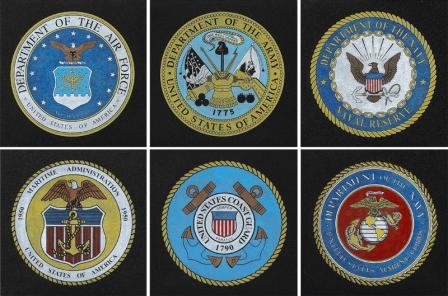 Veterans
Veterans
There may be veterans benefits available at the time of death; they are subject to change without notice and can vary from county to county; below we will briefly outline them. Benefits offered may include:
- A flag
- A stone (Grave Marker)
- A veteran’s grave (family must pay for in local cemeteries)
- Monies - amounts vary
All veterans discharged other than dishonorable are eligible for number’s 1 and 2 and 3.
In Monroe County, these two cemeteries have veteran’s sections:
- Riverside Cemetery
- White Haven Memorial Park
In each of these cemeteries the Veteran or their family must purchase the grave. It is not provided for by the Veteran Administration.
Spouses may be buried next to the Veteran in Riverside Cemetery and White Haven Memorial Park; they must purchase the second grave at the time of death.
Currently, benefit #4 is restricted to:
- Dates in service
- The place of death, or
- Receiving of Compensation or Pension from the V.A.
Critical dates are:
- WW I 04/06/1917 to 11/11/1918
- Korea 06/27/1950 to 12/31/1955
- WW II 12/07/1941 to 12/31/1946
- Vietnam 08/05/1964 to 05/07/1975
- Persian Gulf 08/02/1990 to ??/??/????
- Vietnam 12/22/61 if in Country
Benefits may also be available if the veteran received an expeditionary medal for service in:
- Lebanon 06/01/1983 to 12/01/1987
- Granada 10/23/1983 to 11/21/1983
- Panama 12/20/1989 to 01/31/1990
Place of Death:
- While on active duty in the Armed Forces
- In a V.A. Hospital
All others
Receiving Compensation or Pension from the Veteran Administration. In addition to this, it is essential that you have a copy of the individual’s Honorable Discharge or DD214 showing minimally:
- The branch of service
- The dates of entry and exit from the service
- Service serial number
A discharge was issued through WW II - The DD214 was issued from the Korean Conflict and on.
Military Honor Guard: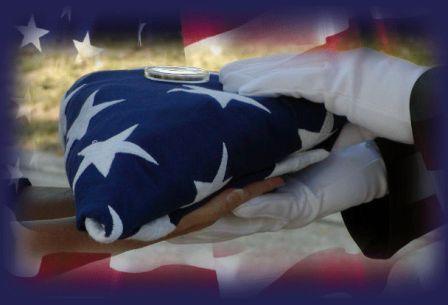 An ap plication for a Military Honor Guard may be made through Brighton Memorial Chapel at the time of death. To facilitate this request a copy of an Honorable Discharge is required.
An ap plication for a Military Honor Guard may be made through Brighton Memorial Chapel at the time of death. To facilitate this request a copy of an Honorable Discharge is required.
NOTE: WITHOUT AN HONORABLE DISCHARGE OR DD214, IT MAY BECOME IMPOSSIBLE TO APPLY FOR ANY BENEFITS.
Click here for the U.S. Department of Veteran Affairs website
Social Services
Indigent deaths (those without funds available) go through the Social Services Welfare program in the county the individual resided in. Each county differs on what they will provide towards a funeral; Brighton Memorial Chapel will assist you in the application process.
Click here for the Monroe County website
Medicare and/or Medicaid
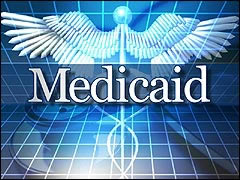 Medicare and/or Medicaid Do Not Provide Any Funds Towards a Funeral.
Medicare and/or Medicaid Do Not Provide Any Funds Towards a Funeral.
They both allow you to set up a burial account, (with some restrictions) BUT the funding for those accounts must come from an individual’s personal assets, prior to the death. A common misconception is that Medicare and/or Medicaid contribute funds towards a funeral – THEY DO NOT.
MEDICARE AND/OR MEDICAID DO NOT PUT A DOLLAR LIMIT ON A FUNERAL.
Click here for the NY State Department of Heath website
Disclaimer: Sometimes questions asked require advice to be rendered which is subjective in nature, and represents the opinions of Brighton Memorial Chapel, Inc. and its agents. Our responses are grounded in fact and delivered with the consumer's best interests as its guide. Information contained herein is subject to change without notice.


